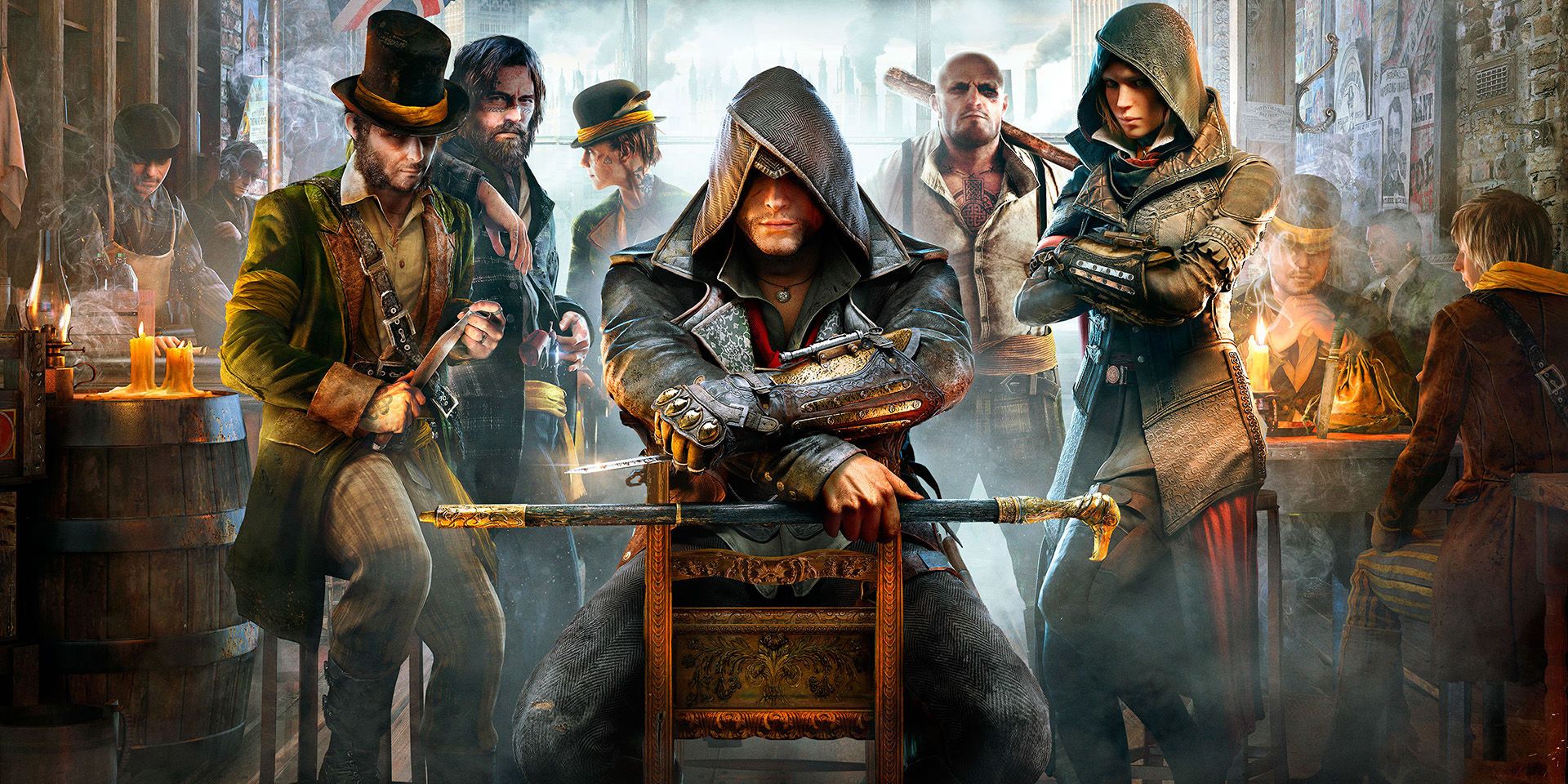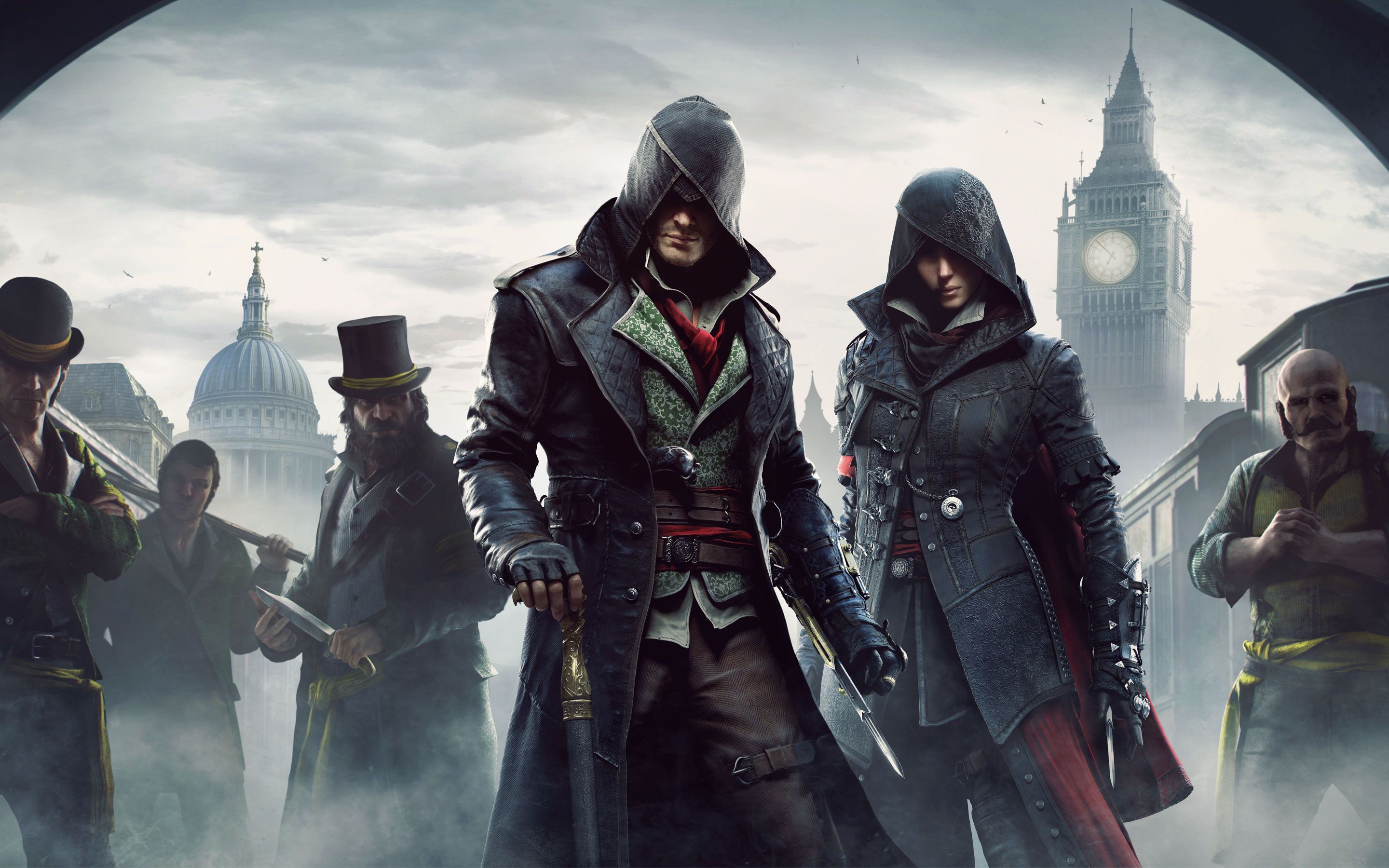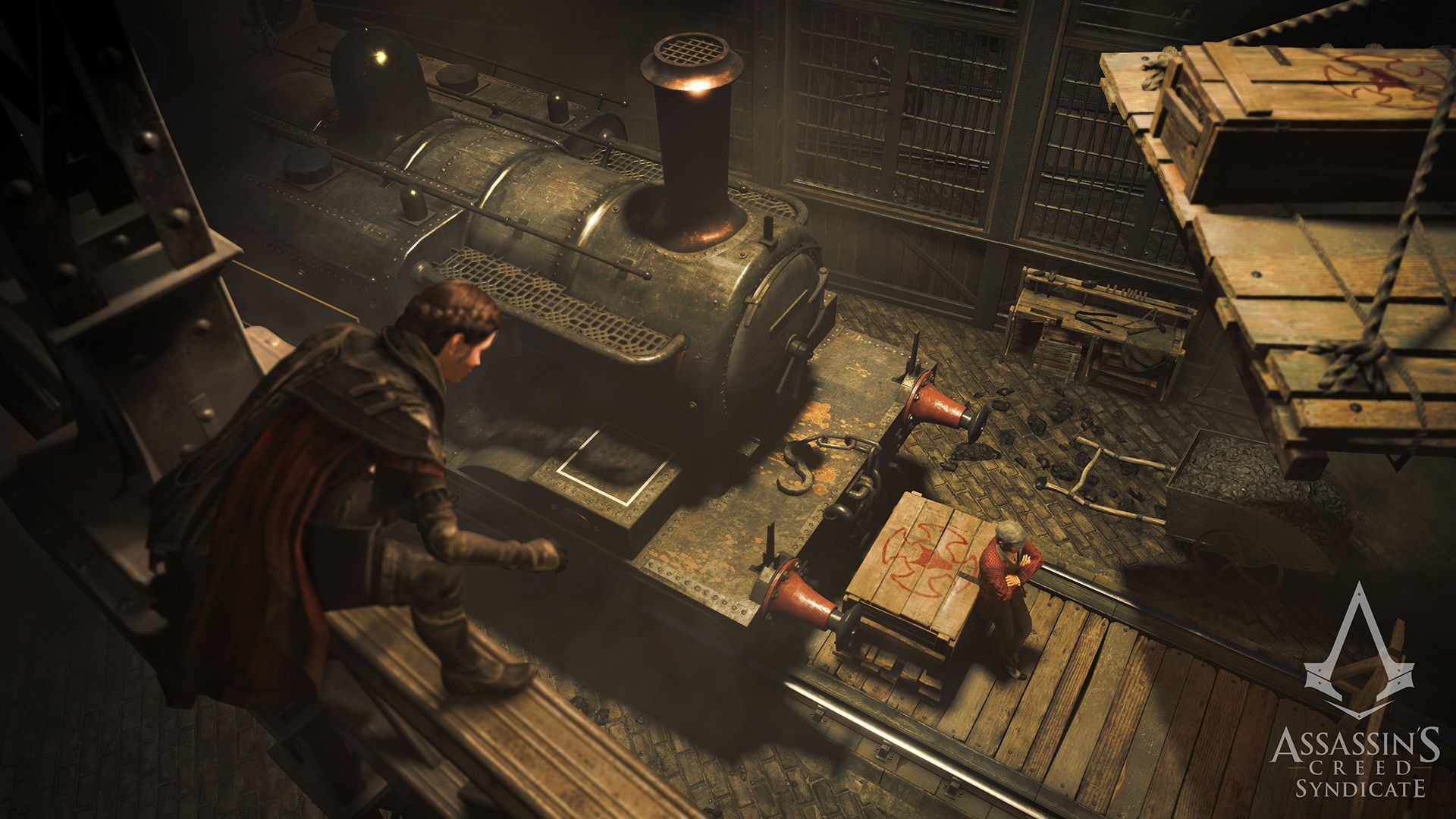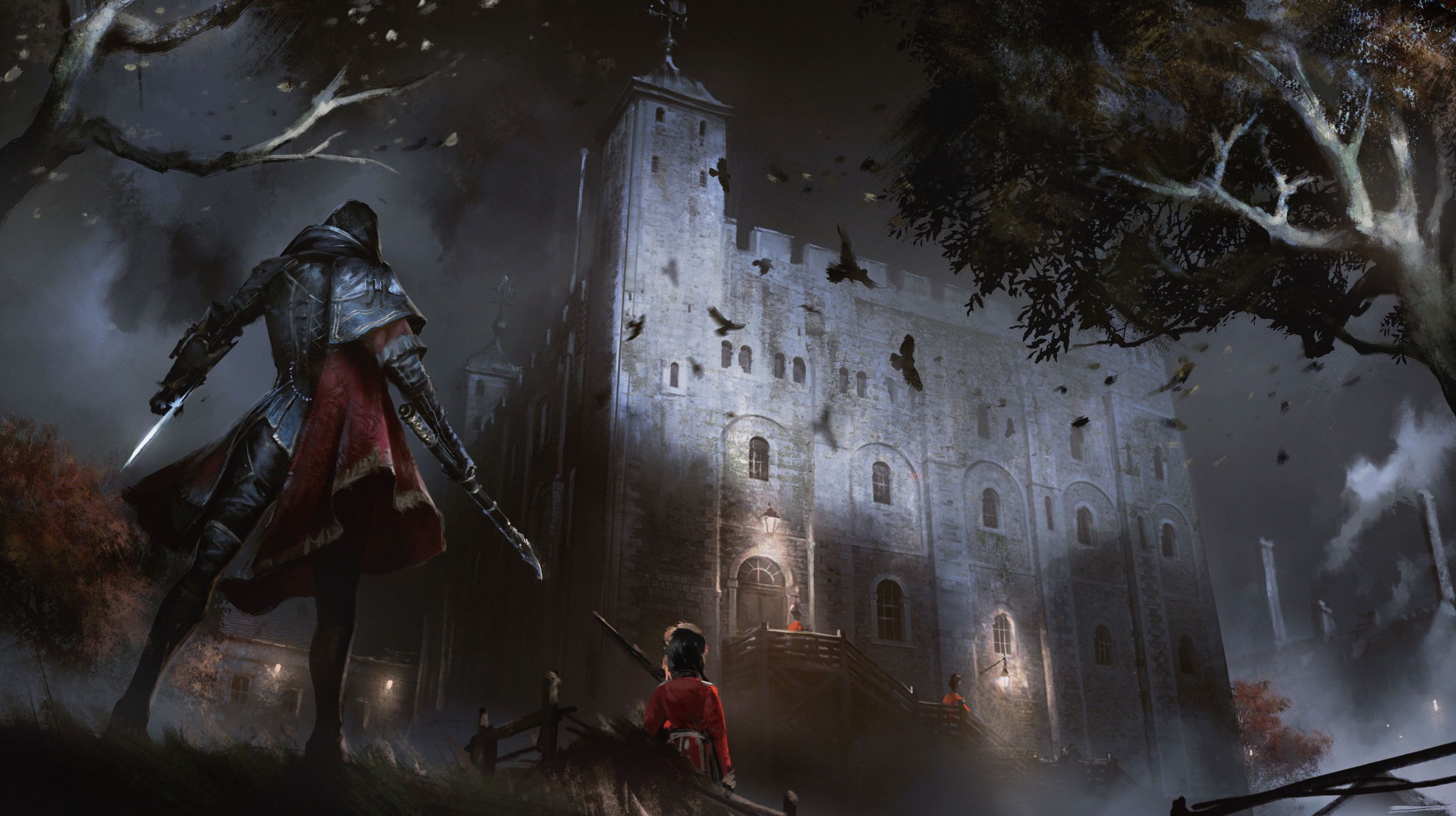2014 was a confusing year for Assassin's Creed fans - when Ubisoft simultaneously took the series into next-gen with Assassin's Creed: Unity (complete with co-op mission multiplayer) while also releasing an old-gen installment, Assassin's Creed: Rogue, for gamers who hadn't yet upgraded to a PlayStation 4 or Xbox One. While Unity was the better-selling, and more marketed title, the next-gen update was riddled with game-breaking bugs and crippled online multiplayer - whereas Rogue did little to improve upon the widely well-received Assassin's Creed 4: Black Flag.
One year later, Ubisoft is back with Assassin's Creed: Syndicate - ditching co-op missions and competitive multiplayer in favor of a standalone tale of brother and sister assassins set in the highly anticipated backdrop of mid-1800s London. As a result, Syndicate has all the necessary pieces to deliver one of the best Assassin's Creed game experiences to date - albeit one that is limited by lingering gameplay hurdles (that have become firmly ingrained in Ubisoft's flagship series).
In the eight years since the first Assassin's Creed released, the series has seen a number of changes - both in storytelling and gameplay. Most players still consider the original Assassin's Creed to be more proof-of-concept than a polished game - a proof-of-concept that was significantly refined in Assassin's Creed 2 and its sequels Brotherhood and Revelations. However, following the Ezio Auditore da Firenze trilogy, AC game design has been a mix of inspired successes and over-complicated additions. Freeing-up AC series design teams to explore a wider variety of locations and stories, Ubisoft swapped out main protagonist Desmond Miles in favor of unnamed "initiates" while at the same time limiting development resources by adding competitive multiplayer modes and first-person segments set within present-day Abstergo Industries, among other ambitious but (to many players) superfluous supplements.
Thankfully, the series returns to form in Syndicate - prioritizing story, characters, setting, and unique assassination encounters over gimmicks. Instead of forcing players through another assassin origin tale, where an inexperienced character becomes an expert killer, Syndicate puts gamers in the boots of Jacob and Evie Frye, twin assassins who are already well-versed in the ways of their brotherhood - preparing to take on a Templar Grand Master, Crawford Starrick, that has London under his corrupt thumb.
Throughout the game, the pair learn fresh skills and acquire new tech (as well as more powerful weapons/armor) to aid them but, even at the start, the Fryes are capable warriors with a history of Templar butt-kicking - especially Evie. After courting criticism and controversy last winter, when Ubisoft claimed they didn't have time to include a female character model for Unity co-op, Evie succeeds as one of the most developed and adept Assassin's Creed heroes (regardless of her gender).
Players earn new gear and skills by collecting XP - borrowing from RPG-like "leveling" systems. The best gear is level-locked, meaning that the superior weapons and armor can only be equipped later in the game, forcing Jacob and Evie to mix-up their arsenals, and ensuring that players can't simply "buy" their way into premium gear. Even the game's divisive inclusion of micro-transactions (which allow for the purchase of in-game currencies and resources with real money) will only take flush gamers so far - since they'll be able to buy high-end weaponry but still won't be able to equip it until reaching the appropriate level through playing the game. In addition to gear, leveling up also unlocks skill points that give gamers access to new abilities. XP is earned across both characters - allowing for different specialization on each character.
To that end, certain skills are exclusive to each character - specifically, Jacob has unlockable perks that favor hand-to-hand combat and gun-wielding where Evie's skill tree includes exclusive perks favoring stealth and silent attacks. Though, the system is somewhat undermined by the game's story - which forces players to take each character into certain campaign missions. The interwoven (but separate) storylines ensure both characters make an impact in the battle for London but can, sometimes, cancel-out choices players make in spending specific skill points.
For instance, gamers could choose to invest in better horse-carriage handling on Jacob, only to get an Evie-exclusive mission that requires a lengthy carriage chase (or invest in new stealth abilities for Evie, only to get a Jacob-exclusive mission that forces the scrappy hero to stalk through an area unnoticed). Fortunately, players earn skill points relatively fast. Those who are willing to tackle some of the game's numerous side activities should be able to hit max level (fully unlocked skill tree and access to the best weapons) near the end of Syndicate's campaign. Most of the weapons and skills will be familiar to longtime fans of the series but Ubisoft has also included a few game-changers that fix long-running problems in the franchise, most notably a rope grapple that allows for speedy vertical traversal (and easy getaways).
Next Page: Assassin's Creed Learning From Past Mistakes?
In Syndicate, Ubisoft successfully iterates on past games - attempting to address some lingering problems with their popular series. Major changes (like the grapple and streamlined narrative) set the stage for one of the best Assassin's Creed titles while minor updates (improved character handling and smoother combat animations) pull Syndicate even closer to being a must-play title for any gamer - even those who have yet to jump into the AC series. There's also plenty to do - with a host of side missions (that vary in intricacy and quality) as well as collectibles, for gamers who want to get premium playtime for dollars spent. That said, Syndicate also shows signs of a series that is struggling to step into the next-generation marketplace - relying heavily on past successes and ideas (with mixed results).
For everything that Syndicate does right, a lot of its achievements come from finding solutions to problems that made previous releases frustrating. Meanwhile, other issues remain. Chiefly among them: combat. Changes to stealth continue to improve - thanks to better control handling and traversal options, as well as rich environments with plenty of places to hide and navigate around patrolling enemies; although, in a world where the Batman Arkham series and others have mastered exciting free-flow combat, Assassin's Creed's predominantly turn-based attack/counter-attack gameplay (where only one A.I. enemy is truly active at any time) is one of the biggest hurdles the series faces - and remains underwhelming in Syndicate.
Unlocking lethal combo/finisher perks allow for some slick additions (and cinematic moments) in combat but, like prior titles, players will likely spend the majority of their time in combat waiting for yellow indicators (that flash over enemy heads) rather than actively engaged and managing enemy crowds - through a range of attacks and diversified experiences. Cane swords and brass knuckles are interesting additions to the arsenal but they don't directly alter long-running combat mechanics. There's no doubt combat is a relic of what Assassin's Creed has been and while it doesn't hurt the Syndicate experience, player versus A.I. experiences do not lay a fertile foundation for where the series should evolve down the line - in order to compete with similar titles and give gamers a fresh experience. Players can make the overall experience more satisfying by taking extra time to be stealthy and avoid mob fights (especially where "unique" assassinations are available in sequence finale encounters); yet, given that Syndicate outright positions Jacob as a hand-to-hand brawler, limited and stilted combat is a missed opportunity (one that the series needs to address and revamp if it is to compete as an annual release).
Despite a solid campaign, and the rich London setting (both as an environment and a backdrop for character drama), external design limitations are especially noticeable as the story comes to a close in the game's final sequences. Compared to certain entries in the series, Syndicate builds to an anticlimactic and uninventive final mission, a chapter that is neither the most interesting, exciting, nor fulfilling of the game - and a glaring example of game developers struggling to inject AC's gameplay onto traditional, and arguably outdated, video game design frameworks (especially when it comes to boss battles).
Nevertheless, in spite of some dated design elements, returning Assassin's Creed fans (especially those put-off by Unity's buggy launch) will find Syndicate is a solid entry in the series - providing some of the franchise's best experiences. It's a solid refinement of what has come before, a game that both franchise fans and newcomers can enjoy, that provides solutions to past problems; though, in an increasingly competitive marketplace, packed with new and imaginative experiences to enjoy, Ubisoft still has some troublesome kinks to work out if Assassin's Creed is going to be just as successful in this new console generation.
Next: Fallout 4 Is Addictively Fun Despite Dated Design Issues
Assassin’s Creed Syndicate is available now on PC, PlayStation 4, and Xbox One.






